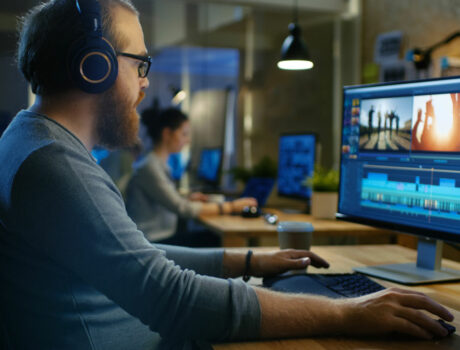7 things to know about video analysis for attorneys
Video analysis has become an essential tool for attorneys in various legal contexts, from criminal cases to civil disputes. K and R Digital Media Forensic can help you know about video analysis for attorneys in and around Grand Rapids, Ann Arbor, Detroit, Warren, Southfield, Sterling Heights.
Here are seven important things to know about video analysis for attorneys:
- Evidentiary Value: Videos can provide powerful evidence in legal proceedings due to their ability to capture events, actions, and emotions in real time. Attorneys can use videos to support their arguments, demonstrate facts, and recreate incidents.
- Authentication: Ensuring the authenticity of video evidence is crucial. Attorneys should be aware of the potential for manipulation, editing, or tampering with videos. Working with experts who can verify the source and integrity of the video is essential to establish its credibility in court.
- Chain of Custody: Maintaining a proper chain of custody for video evidence is important. This involves documenting who had access to the video, where it was stored, and any changes made to it. A well-documented chain of custody enhances the admissibility of the evidence in court.
- Enhancement and Analysis Tools: Attorneys can utilize various software tools and technologies to enhance, clarify, and analyze video evidence. These tools can help in zooming in on specific details, slowing down or speeding up footage, and even extracting still frames to highlight crucial moments.
- Expert Witnesses: In complex cases, attorneys may need to call upon video analysis experts to interpret and explain the technical aspects of the video evidence to the judge and jury. These experts can provide insights into the video’s authenticity, content, and any potential alterations.
- Contextual Understanding: While videos capture visual information, they may lack essential context. Attorneys should ensure that they provide sufficient context and explanations to the court, helping judges and jurors understand the events leading up to and following the recorded incident.
- Privacy and Consent: It’s important to consider privacy and consent issues when dealing with video evidence. Attorneys should be aware of laws and regulations surrounding video recording, especially in public spaces or private properties. Unauthorized recording or the use of videos without consent could lead to legal complications.
Ultimately, video analysis can be a potent tool in an attorney’s arsenal, helping them present compelling arguments and strengthen their case. However, it’s crucial to handle video evidence ethically, transparently, and within the boundaries of legal and ethical standards. Please call us without any hesitation.
